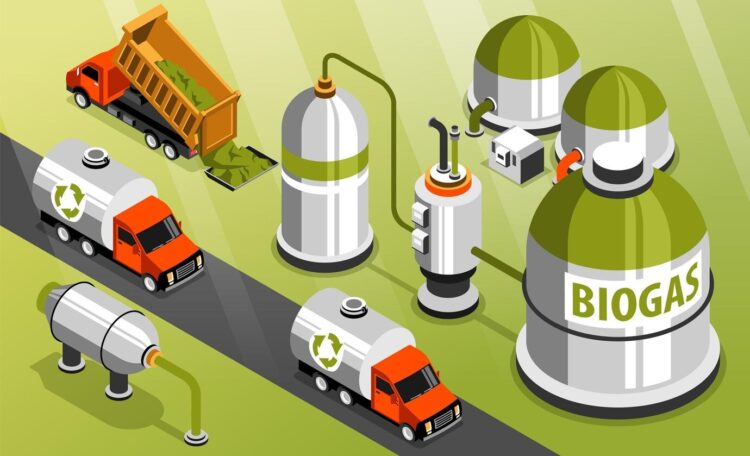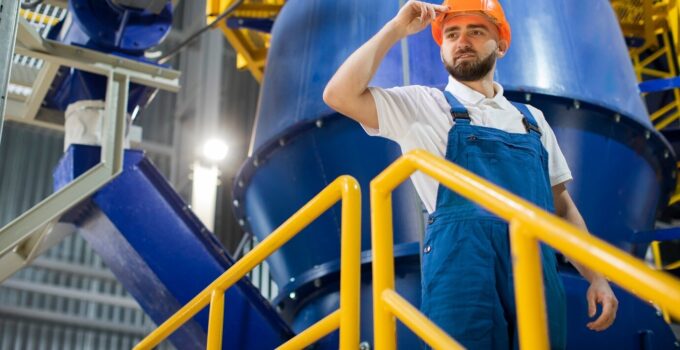Biogas production is a key part of renewable energy efforts. It turns organic waste into fuel, offering a sustainable alternative to traditional energy sources. However, the process comes with risks that must be managed carefully. One of the most important aspects of biogas production is maintaining the correct oxygen levels, which are critical for both safety and efficiency.
Page Contents
The Role of Oxygen in Biogas Production
Maintaining the right oxygen levels is vital to the safe and efficient operation of biogas plants. In anaerobic digestion, oxygen plays a key role in preventing the accumulation of harmful gases such as hydrogen sulfide, which can be dangerous if not controlled. Too little of it can lead to an unsafe environment, while too much can interfere with the anaerobic process, reducing overall efficiency.
This is why these generators are necessary. They ensure a steady and controlled supply, preventing unsafe conditions and optimizing the overall production process. Pressure Swing Adsorption (PSA) technology, often used in oxygen generation, has become a preferred solution in biogas facilities because of its reliability and cost-efficiency.
Oxygen Generators for Biogas

Source: freeepik.com
In many biogas plants, PSA oxygen generators are employed to keep the anaerobic digestion process stable. By providing a reliable O source, they ensure that harmful gas buildup is avoided and that the breakdown of organic materials proceeds as intended.
Companies like Berg GaseTech offer oxygen generators for biogas plants that rely on PSA technology. This ensures a stable environment where oxygen levels are properly regulated. The efficient breakdown of waste results in higher productivity and safer conditions, proving the importance of this equipment.
Safety in Biogas Production
Oxygen levels are not just about efficiency; they are also about safety. In anaerobic digestion, gases such as methane and hydrogen sulfide naturally form. These gases can be highly combustible and dangerous if allowed to accumulate unchecked. Maintaining optimal levels prevents the creation of an unsafe working environment.
Using generators specifically designed for oxygen production reduces the risk of gas accumulation. A steady flow ensures that dangerous gases are kept under control, creating a safer production environment for plant operators and surrounding areas. It is not just about increasing production but also about ensuring that operations are carried out without putting anyone at risk.
PSA Technology and Its Importance
PSA technology works by separating oxygen from the air using pressure, which results in a steady and reliable supply. This technology is commonly used in industries where a constant supply is needed, and biogas production is no exception.
PSA-based oxygen generators are easy to maintain, efficient, and cost-effective. They provide a continuous flow of the gas, which is vital for biogas plants to function safely and efficiently. By using PSA generators, biogas plants can ensure that they always have enough oxygen for their operations without having to rely on external suppliers or costly deliveries.
Cost-Effectiveness and Efficiency

Source: Freepik.com
A consistent oxygen supply keeps anaerobic digestion running smoothly, which in turn increases productivity. Without adequate oxygen, the breakdown of organic material slows down, reducing the amount of biogas that can be produced.
PSA generators are not only reliable but also reduce operational costs. Since they extract oxygen directly from the air, they eliminate the need for regular deliveries. This makes them a more cost-effective solution compared to other methods of oxygen supply, allowing biogas plants to cut costs while ensuring continuous production.
Preventing the Buildup of Harmful Gases
One of the biggest dangers in biogas production is the buildup of harmful gases like hydrogen sulfide. This gas is both toxic and corrosive, meaning that it can not only cause damage to equipment but also pose a significant risk to workers and the environment. Excess hydrogen sulfide also decreases the overall quality of the biogas produced, making it less efficient as a fuel source.
Oxygen generators help prevent the accumulation of harmful gases by providing a controlled oxygen supply. By maintaining the correct levels, they ensure that the anaerobic digestion process remains balanced, preventing the buildup of gases that could otherwise lead to safety hazards.
Enhancing Biogas Quality and Output
Oxygen control is not only important for safety but also for the quality of the biogas produced. When oxygen levels are properly managed, the resulting biogas is cleaner and more efficient, with fewer impurities. Cleaner gas is more effective as a fuel source, allowing plants to generate more energy from the same amount of waste.
High-quality biogas has a higher calorific value, meaning it produces more energy when burned.
Reducing Environmental Impact

Source: freepik.com
By maintaining optimal levels, biogas plants can operate more efficiently, which reduces the overall amount of organic waste needed to produce biogas. Less waste means a lower environmental impact and a more sustainable production process.
In addition, preventing the release of harmful gases into the atmosphere is another way in which oxygen generators help reduce environmental harm. Methane and hydrogen sulfide, if not controlled, can be extremely damaging to the environment.
Conclusion
Oxygen generators are vital for the safe and efficient production of biogas. They ensure that biogas plants operate at optimal conditions, providing a reliable supply that prevents the buildup of dangerous gases. PSA oxygen generators, in particular, offer a cost-effective solution that enhances both safety and productivity.
By using oxygen generators, biogas plants can improve the quality of the biogas they produce, ensuring that it is clean, efficient, and ready for use in power generation. These generators also play a crucial role in reducing the environmental impact of biogas production, making it a more sustainable energy option.




